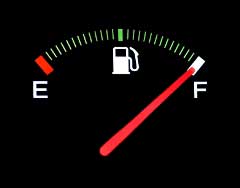Advantages of diesel engine and petrol engine - Vol.34
Wherever you live, chances are that petrol engines are more common than diesels. But do you know the differences between the two? Do you know each works, and do you understand the pros and cons of both? Let's take a look to clarify these things.
Petrol (Gasoline) Engine
The petrol engine (aka gas engine in the U.S.) is one of the two main types of engines. Essentially, it utilizes the process of combustion to operate. Combustion is basically the mixing of gasoline vapors with air, at a very high temperature and pressure, to drive pistons—which power the rest of the engine. The car's battery is attached via an "induction coil" to the engine and serves to provide a very small "spark" to ignite the air/gas mixture.

Diesel Engines
Diesel engines are very much like gas engines. Combustion takes place to drive power to pistons, just as it does in a gasoline engine. This, by the way, is referred to as the conversion of chemical energy to mechanical energy. Diesels and gas engines also tend to share very similar architectural elements as well, like crankshafts and cylinders.
The fundamental difference in diesel and gas engines is the method of sparking the mixture. In a diesel, the air is the only initial thing that is compressed via pistons and after that happens, fuel is introduced to the compressed air (which is very hot now due to compression). In a gas engine, air and gas are simultaneously combined.
The gas engine: pros and cons
Pros
· Gas engines are typically more powerful, by way of horsepower, than diesels.
· Petrol engines (same as gas, for readers of different cultures) also generally benefit from being easier to tune and tune-up.
· Furthermore, petrol engines have a better ratio of price to power and burns fuel more eco-friendly than diesel does.
· Petrol is usually cheaper than diesel fuel; this comes with a tradeoff, though: which you'll see in the next paragraph.
Cons
· The downside for the petrol engine is that, typically, its lifespan is almost always shorter than that of the diesel.
· This basically relates to the fact that diesel engines will usually have a higher residual (resale) value.
· Equally, if not more, important is the fact that gas engines get less miles-per-gallon (sometimes significantly) than their diesel counterparts.
Diesel Engines: pros and cons
Pros
· Diesel engines offer better resale values
· Diesel engines have much better fuel economy
· Diesel engines are generally more reliable than petrol engines
· Diesels often have much more torque (twisting power of pistons) than petrol
· Much more suitable for things like heavy-towing, industrial applications, and driving long distances more frequently (as it relates much more to trucks than diesel cars)
Cons
· Diesel-powered autos are generally more expensive: giving petrol engines the advantage
· Diesel does not burn as clean as petrol, and it is "filthier" in a loose meaning of the word
· Diesels almost always have less horsepower (for accelerating, merging, etc) than similar gas engines
· Most car models are gas-powered, at least until diesel becomes more environmentally friendly.
· Diesel can be harder to find in different regions—according to availability.
· Diesel engines, especially older ones, are noisier than petrol engines.
Caveat
For those in the United Kingdom, diesel prices as compared with petrol prices can actually be cheaper. This is never the case in the U.S., though. Diesel is more heavily taxed than gas in the U.S. and in other countries in the West.

There you have it: the fundamental differences in the two types of engines, the pros of each and the cons of each. Keep in mind that engine technology is, as ever, rapidly growing and changing. The facts presented above could become quite skewed as such things a hybrid, electric, hybrid-diesel and so forth start to gain mainstream momentum.